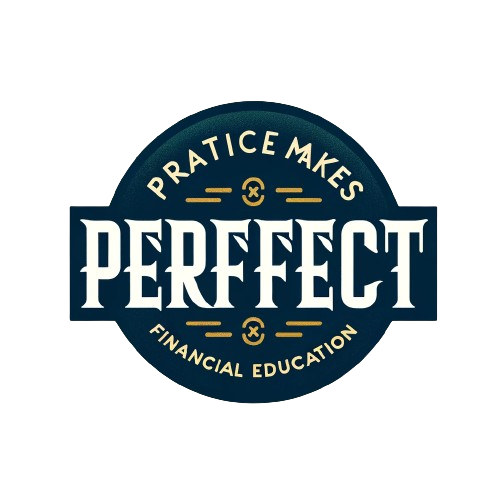In today’s fast-paced financial landscape, staying informed and making educated decisions are more critical than ever. Financial education courses provide the knowledge and skills needed to navigate investments, savings, and overall financial planning effectively. Whether you’re a novice looking to understand the basics or a seasoned investor aiming to refine your strategy, there’s a course out there to suit your needs. This blog post will explore some of the best financial education courses available, helping you learn and grow in your financial journey.

Why Financial Education Matters
Financial literacy is the foundation of sound financial decision-making. Understanding how to manage your money, invest wisely, and plan for the future can significantly impact your financial health. Financial education courses cover a range of topics, from budgeting and saving to investing and retirement planning. By investing time in these courses, you gain the tools to build a secure financial future and achieve your goals.
Top Financial Education Courses
1. Coursera – Financial Markets by Yale University
This course, taught by Nobel laureate Robert Shiller, offers an in-depth look at financial markets and their role in the economy. It covers risk management, behavioral finance, and the workings of securities, insurance, and banking industries. The course is accessible to beginners and provides valuable insights for advanced learners.
Pros:
- Taught by a renowned professor
- Comprehensive coverage of financial markets
- Available for free with the option to pay for a certificate
Cons:
- Requires a significant time commitment
- Advanced concepts may be challenging for absolute beginners
2. Udemy – The Complete Financial Analyst Course 2023
Udemy’s comprehensive course is designed for aspiring financial analysts. It covers financial analysis, financial modeling, company valuation, and more. The course includes downloadable resources, quizzes, and real-world examples to help you apply what you learn.
Pros:
- Practical, hands-on approach
- Affordable pricing
- Lifetime access to course materials
Cons:
- Not accredited
- Requires self-discipline to complete
3. edX – Personal Finance by Indiana University
This course focuses on personal finance management, covering budgeting, saving, credit, and debt management. It’s ideal for individuals looking to improve their financial habits and make informed decisions about their money.
Pros:
- Focuses on practical personal finance skills
- Free to audit with a fee for certification
- Taught by experienced instructors
Cons:
- Less focus on advanced investing strategies
- Limited interaction with instructors
4. Khan Academy – Personal Finance
Khan Academy offers a free, comprehensive course on personal finance that covers topics like taxes, retirement savings, and managing debt. The course is designed to be accessible to everyone, with easy-to-understand videos and interactive exercises.
Pros:
- Completely free
- Easy to understand
- Self-paced learning
Cons:
- No formal certification
- Basic coverage of topics
5. The College for Financial Planning – CFP Certification Professional Education Program
For those looking to become certified financial planners, the CFP Certification Program is an excellent choice. It covers all the topics needed to pass the CFP exam, including financial planning, tax planning, retirement planning, and estate planning.
Pros:
- Comprehensive curriculum
- Recognized certification
- Access to industry experts
Cons:
- Expensive
- Requires a significant time investment
How to Choose the Right Course
Choosing the right financial education course depends on your goals, current knowledge level, and learning preferences. Here are some tips to help you decide:
- Identify Your Goals: Are you looking to improve your personal finance skills, or do you want to pursue a career in finance? Understanding your goals will help you choose a course that aligns with your needs.
- Assess Your Current Knowledge: Some courses are designed for beginners, while others are more advanced. Choose a course that matches your current level of knowledge.
- Consider the Format: Do you prefer self-paced learning, or do you thrive in a structured environment with deadlines? Select a course format that suits your learning style.
- Check the Credentials: Look for courses taught by reputable institutions or instructors with relevant expertise. Accredited courses can add value to your resume.
- Read Reviews: Reviews from past participants can provide insights into the course’s quality and what you can expect to learn.
Benefits of Financial Education
Unlocking the Benefits of Financial Education
Investing in financial education is more than just a smart move—it’s a necessity in today’s complex financial world. Here are some key benefits of financial education:
1. Improved Financial Decision-Making
One of the most significant benefits of financial education is the ability to make informed decisions. Understanding economic concepts helps you evaluate investment opportunities, manage debt effectively, and plan for retirement. With the proper knowledge, you can avoid common financial pitfalls and make choices that support your long-term goals.
2. Enhanced Financial Security
Financial education equips you with the tools to build and protect your wealth. By learning about budgeting, saving, and investing, you can create a solid financial foundation. This security is essential for handling unexpected expenses, achieving financial independence, and ensuring a comfortable retirement.
3. Increased Confidence
Knowledge is power, and with financial education, you gain the confidence to take control of your finances. This confidence can lead to better negotiations, more strategic investments, and a proactive approach to financial planning.
4. Access to Better Opportunities
A well-rounded financial education can open doors to new opportunities. Whether it’s qualifying for a mortgage, securing a business loan, or investing in high-return assets, having the proper knowledge can make these opportunities more accessible.
5. Long-Term Financial Health
Financial education is an investment in your future. By continuously improving your financial literacy, you can adapt to changes in the market, adjust your strategies, and maintain long-term financial health. This proactive approach ensures that you’re always prepared for whatever comes your way.
Conclusion
Investing in financial education is one of the best decisions you can make for your future. With the right course, you can gain the knowledge and skills needed to manage your finances effectively, achieve your goals, and build a secure financial future. Whether you’re just starting or looking to advance your career, there’s a financial education course out there to help you learn and grow. Take the time to explore your options and choose the course that best fits your needs. Your future self will thank you for it.

